Get a Credit Card today
Best Credit Cards Germany
Looking for the best credit card in Germany? With our free and 100% digital comparison, you can quickly find the card that suits your needs. It’s easy to apply, and you’ll get an instant response, so you can start using your new card right away.
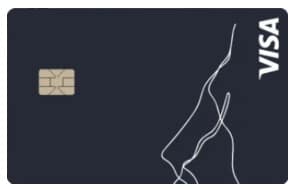
Instabank Credit Card
No annual fee. Full digital control. Virtual card. Cashback on all purchases and global acceptance. Ideal for smart budgeting and flexible spending.
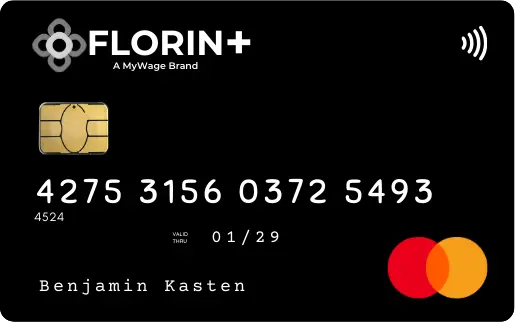
MyWage FLORIN+ Credit Card
Fast and easy application, no paperwork. Great for newcomers needing immediate financial flexibility in Germany.
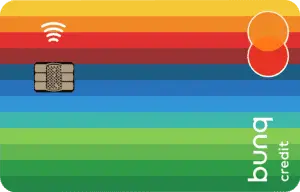
Bunq Credit Card
Open account 100% online. Cashback, interest on savings, and sustainability features. Perfect for expats and travelers.
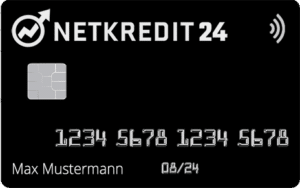
Netkredit24 Credit Card
No hidden fees, flexible repayments, and full control via app. A great everyday credit solution.
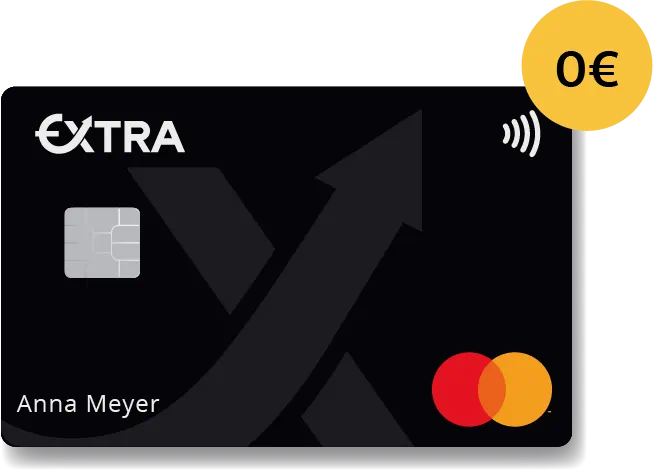
Extrakarte Credit Card
Great for travel and lifestyle benefits. No annual fee and exclusive discounts through membership program.
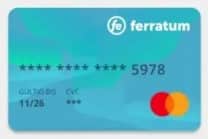
Ferratum Mastercard
Fully digital card with flexible repayment. Great for freelancers and everyday spending with global acceptance.
Credit cards, or Kreditkarten, are widely used in Germany, offering flexibility for everyday purchases, online shopping, and travel. With a variety of options—such as cashback, rewards, and low-interest cards—choosing the right one can maximize your benefits. We’re here to help you understand the options and find the best credit card tailored to your financial needs in Germany.
Best Credit Cards for Expats in Germany
Instabank Credit Card

Instabank Kreditkarte – Flexible Credit with Cashback & No Annual Fee
The Instabank Credit Card is a solid option for those seeking flexibility and simple terms in Germany. With no annual fee and a credit limit of up to €10,000, it gives you real financial breathing room—whether you’re managing daily expenses or planning a bigger purchase. Plus, you get up to 6 weeks of interest-free repayment, which helps keep costs down when used smartly.
What makes the Instabank card especially attractive is its cashback benefit: 1% on all purchases. Whether you’re shopping online, at the supermarket, or traveling abroad, every transaction earns you money back—automatically credited to your account each month. The card is accepted globally through Mastercard, and you can easily manage it via the Instabank app.
You also get full control with features like payment reminders, transaction overviews, and flexible monthly repayments. Applying is fast and paperless, and the card can be used immediately with a virtual version while waiting for the physical card.
Benefits:
- No annual fee
- Up to €10,000 credit limit
- 1% cashback on all purchases
- Up to 6 weeks interest-free
- Fully digital card setup and app control
Ideal For: Users looking for a high-limit credit card with cashback and no hidden fees—perfect for everyday use and smart budgeting.
APPLY NOW »MyWage FLORIN+ Credit Card

FLORIN+ – Fast, Flexible Credit with No Annual Fee
The FLORIN+ Mastercard from MyWage is designed for simplicity and speed, making it a great option for expats and residents in Germany who need fast access to credit. With an instant credit limit of up to €4,000 and up to 7 weeks of interest-free repayment, it’s ideal for everyday spending or unexpected costs.
You can apply fully online in just a few minutes, and there’s no annual fee. Once approved, you can start using your virtual card immediately while waiting for the physical version to arrive. All payments and settings are managed through the MyWage app, offering full transparency and control over your finances.
While it’s easy to get started, it’s important to manage the card wisely. The interest rate is high if you don’t pay your balance in full, and fees apply for cash withdrawals and purchases outside the Eurozone. Still, if used responsibly, FLORIN+ offers a flexible, no-fuss way to manage short-term spending.
Benefits:
- No annual fee
- Credit limit up to €4,000
- Up to 7 weeks interest-free repayment
- Fast digital application and instant virtual card
- No bank account switch required
Ideal For: Users who want a quick, straightforward credit card without fees or paperwork—great for newcomers to Germany needing immediate financial flexibility.
APPLY NOW »Bunq Credit Card

Bunq – The Smart Banking Choice for Expats
The Bunq Credit Card is more than just a card – it’s a complete digital banking solution that makes life easier for expats in Germany. With a 100% online setup, no paperwork, and full English support, you can open your account in minutes—even before you receive your local documents like a tax ID or residence permit.
One of the key benefits of Bunq is flexibility. You get a Mastercard-backed card with zero foreign exchange fees through ZeroFX, making it ideal for spending outside the Eurozone. The card also comes with smart budgeting features like multiple IBANs, savings accounts with weekly interest payouts (up to 2.26% in EUR), and even cashback on dining (1%) and public transport (2%).
Bunq also puts a big focus on sustainability: every time you use your card, you help plant trees. And if you’re into investing or crypto, you can start directly in the app with as little as €10. Everything is managed through an easy-to-use app that supports multiple languages, making it super convenient for expats who are still settling in.
Benefits:
- No paperwork – open your account 100% online
- No FX fees with ZeroFX for international spending
- Earn up to 2.26% interest on savings
- Cashback: 1% on restaurants/bars, 2% on public transport
- Built-in crypto and investment features
- Tree-planting rewards with every purchase
Ideal For: Expats who want a modern, all-in-one banking and credit card solution with cashback, savings, and sustainability—without the hassle of German bureaucracy.
APPLY NOW »Netkredit24 Credit Card

The Netkredit24 Credit Card offers a perfect combination of flexibility and simplicity, making it a reliable choice for everyday financial needs. With no annual fees and a credit limit of up to €4,000, this card is designed for users seeking a straightforward credit solution without hidden costs. The generous interest-free repayment period of up to seven weeks provides ample time to manage your payments without worrying about interest charges.
What sets the Netkredit24 Credit Card apart is its convenience. The card can be used freely within the Eurozone without additional charges, making it ideal for both daily purchases and travel. Its user-friendly app allows for seamless management of income and expenses, giving you full control of your finances at all times. Flexible repayment options and the lack of an account change requirement further enhance its accessibility.
Benefits:
- No annual or card fees
- Interest-free repayment up to 7 weeks
- Personal credit limit up to €4,000.
Ideal For: Users looking for a no-fee card with flexible repayment and straightforward financial management options.
APPLY NOW »Extrakarte Credit Card

The Extrakarte Credit Card is a versatile and feature-packed option for individuals seeking convenience and exclusive perks. Designed to suit a wide range of users, this card offers a combination of flexibility and savings opportunities. One of its standout features is the absence of an annual fee, making it an attractive choice for budget-conscious users. Additionally, the card provides up to seven weeks of interest-free payment, giving you ample time to manage your finances without incurring extra costs.
This card is especially appealing for those who value rewards and benefits. With the Extra Club membership, cardholders gain access to exclusive deals on shopping, wellness, and travel. These offers include discounts on luxury items, spa treatments, and curated travel experiences. Whether you’re looking to enhance your lifestyle or manage daily expenses efficiently, the Extrakarte Credit Card delivers value and flexibility tailored to your needs.
For quasi-cash transactions, such as payments that can be directly converted into cash or used for the issuance of electronic money (“e-money”), a fee of 5.95% of the amount applies, with a minimum charge of €5.95.
There are no changes to any other fees associated with the Extrakarte Credit Card.
Benefits:
- No annual fee
- Up to 7 weeks interest-free
- 5% travel cashback
- Exclusive offers through Extra Club.
Ideal For: Users seeking a no-fee card with added shopping and travel perks.
APPLY NOW »Ferratum Mastercard

The Ferratum Mastercard is a fully digital credit card designed for everyday flexibility. With a credit limit of up to €4,000 and no monthly or annual fees on the Lite plan, it’s a great option for those who want quick access to credit without the hassle. The card can be activated in just minutes and comes with a free bank account and savings account included.
Use your Ferratum Mastercard online or in-store, either digitally or (soon) with a physical card. Mobile payments with Apple Pay and Google Pay are also supported, making it easy to pay on the go. You can shop securely at over 30 million locations worldwide.
One of the key benefits of this card is its flexible repayment options. You can choose to pay back just 7% of your balance or pay it off in full—your credit limit updates instantly once payment is received.
Benefits
- Credit limit up to €4,000
- No monthly or annual fees with the Lite plan
- Free bank account and savings account included
- Fast online application and activation (usually within minutes)
- Use with Apple Pay & Google Pay
- Flexible repayments – pay 7% or the full balance
- Secure payments at over 30 million merchants worldwide
Ideal for
Expats, freelancers, and residents in Germany who want a quick and flexible credit solution without fixed fees. Perfect if you prefer a fully digital banking experience and the freedom to manage your card and account from your smartphone.
APPLY NOW »N26 Mastercard
N26 is a popular online bank in Germany, especially among expats. Their Mastercard is easy to obtain, with minimal paperwork and a quick online application process.
Benefits:
- No annual fee for the standard card.
- Compatible with Apple Pay and Google Pay for easy digital payments.
- Real-time transaction notifications and expense tracking via the N26 app.
- Available in English, making it accessible for non-German speakers.
Ideal For: Expats looking for a no-fee, digital-first banking experience with easy account management.
DKB Visa Card
The DKB Visa Card is another excellent option for expats, offering free international withdrawals and low fees. It is linked to the DKB Cash account, which has no monthly fee if you maintain active usage.
Benefits:
- Free ATM withdrawals worldwide for active users.
- No annual fee when linked to the DKB Cash account.
- Offers a credit limit based on your account activity and income.
- Multilingual customer service support, making it expat-friendly.
Ideal For: Expats who travel frequently and want to avoid fees on international withdrawals.
Revolut
Revolut is a digital banking platform that offers a flexible and international-friendly card option, perfect for expats who frequently transfer money between countries.
Benefits:
- Free account option available, with premium plans for more perks.
- Low or no fees for currency exchanges, making it ideal for international payments.
- Supports Apple Pay and Google Pay, with easy-to-use mobile app features.
- Instant card freezing/unfreezing for added security.
Ideal For: Expats who manage finances in multiple currencies and want a card that offers low fees on international transactions.
Barclaycard Visa
Barclaycard Visa is another solid option for expats in Germany, offering flexibility with no annual fees and a grace period on repayments.
Benefits:
- No annual fee.
- No foreign transaction fees, making it a good choice for international use.
- 2-month interest-free period on purchases if the balance is paid in full.
- English-language support available for easy communication.
Ideal For: Expats who want a straightforward, fee-free card that works well for international purchases.
ING DiBa Mastercard
ING DiBa offers a flexible credit card option for expats who already have or plan to open an ING bank account in Germany.
- Benefits:
- No annual fee for ING account holders.
- Free ATM withdrawals within the Eurozone.
- Convenient mobile app for account and card management.
- Offers automatic transaction notifications for security and expense tracking.
- Ideal For: Expats who prefer a traditional bank with strong online and mobile services.
Guide to Credit Cards
Credit cards are a versatile way to manage payments and expenses for everyday use, online shopping, or travel. To make the most of a credit card in Germany, it’s important to understand how they work, how to maximize rewards, and the implications of repayment and interest rates. Below is a comprehensive guide to help you navigate these aspects.
How Credit Cards Work
Credit cards in Germany allow you to borrow money up to a set credit limit for purchases or cash advances. When you use your card, the issuer pays the merchant on your behalf, and you owe this amount to the issuer. Each month, you receive a statement summarizing your transactions, and you can repay the entire balance or a minimum portion of it.
- Billing Cycle: Typically, you have around 30 days from the statement date to pay off the full balance without incurring interest. This is known as the interest-free period.
- Credit Limit: The credit limit varies based on your creditworthiness, determined by factors like your income and credit score (Schufa score in Germany).
- Credit Score Impact: Responsible use of your credit card—such as paying on time and keeping balances low—can positively impact your credit score.
How Rewards Work
Many credit cards in Germany offer rewards programs to incentivize spending. These rewards can come in various forms, such as cashback, points, or travel miles, and are typically earned based on your spending habits.
- Cashback: Some cards offer a percentage of your spending as cashback, which is credited back to your account. For example, a card might give you 1% cashback on all purchases, meaning if you spend 1,000 EUR, you earn 10 EUR back.
- Points Systems: Other cards operate on a points system, where you earn points for every euro spent. These points can be redeemed for gift cards, discounts, or travel rewards.
- Travel Miles: Travel-focused credit cards allow you to earn miles that can be used for flight bookings, hotel stays, or car rentals. Frequent travelers can maximize their benefits by using such cards for travel-related expenses.
It’s important to choose a rewards program that matches your spending habits. For example, if you travel often, a card offering travel rewards might be more valuable than a cashback card.
Repayment & Interest Rates Explained
Credit cards offer flexibility in how you repay your balance, but understanding interest rates and fees is crucial to avoiding debt and maximizing benefits.
- Repayment Options: You can choose to repay the full balance each month or pay a minimum amount and carry the remaining balance over to the next billing cycle. Paying the full balance avoids interest charges, while paying only the minimum incurs interest on the remaining amount.
- Interest Rates (APR): The annual percentage rate (APR) for credit cards in Germany varies, typically ranging from 10% to 20%, depending on the card and your credit score. If you carry a balance, this interest is applied daily, making it essential to pay off your balance as soon as possible to minimize charges.
- Late Payment Fees: Missing a payment deadline can result in late fees and may negatively impact your credit score. It’s important to set up automatic payments or reminders to ensure timely payments.
By understanding how repayment works and managing your credit card responsibly, you can make the most of the benefits while avoiding high-interest charges and fees.
How to Apply for a Credit Card Online in Germany
Applying for a credit card online in Germany is a convenient and efficient process. Many banks and credit card providers offer easy online application forms, allowing you to apply and receive a decision quickly.
- Research Credit Card Options: Use comparison websites or your bank’s site to find the best credit card that matches your needs, whether it’s cashback, rewards, or low-interest options.
- Check Eligibility Requirements: Review the card’s criteria, such as minimum income and credit score (Schufa score), to ensure you qualify before proceeding with the application.
- Gather Necessary Documents: Prepare digital copies of your ID or passport, proof of residence (e.g., rental contract or utility bill), and proof of income (salary slips or tax returns).
- Fill Out the Online Application: Enter your personal information, financial details, and upload the necessary documents. Double-check for accuracy to avoid delays.
- Submit the Application: After filling out the form, submit it online. Many providers offer instant or quick approval decisions, typically within a few hours or days.
- Verify Your Identity: Some providers use digital identity verification services like PostIdent or IDnow, where you complete a video call to confirm your identity.
- Receive Your Card: Once approved, your physical card will be mailed to your address. In the meantime, some issuers offer a virtual card for immediate use.
FAQ
Frequently Asked Questions
Yes, expats can apply for credit cards in Germany. Many banks and digital platforms, such as N26 and Revolut, offer cards specifically designed for expats.
Typically, you’ll need proof of residence, a valid ID or passport, proof of income (e.g., salary slips), and a Schufa credit check (in some cases).
Yes, some digital banks like N26 and Revolut may offer credit cards with minimal or no Schufa check, making them accessible for new arrivals.
The DKB Visa Card and Revolut are great options, offering fee-free international withdrawals and low-cost currency exchanges for frequent travelers.
While it’s generally required, some international providers like Revolut allow you to apply without a traditional German bank account.
Yes, programs like KfW loans offer favorable terms for first-time buyers, including lower interest rates and grants for energy-efficient homes. Check eligibility requirements to see if you qualify.
Yes, you can repay your mortgage early, but some lenders may charge a prepayment penalty. It’s important to review the loan terms carefully to understand any fees associated with early repayment.
Approval times vary. Traditional banks may take several weeks for approval, while some online lenders and digital banks offer faster processes, often within a few days.
Interest rates vary depending on the type of mortgage and your financial profile but generally range from 1% to 4% for fixed-rate mortgages.
If your downpayment is less than 20%, some lenders may require you to take out private mortgage insurance to protect against default. This adds an extra cost to your mortgage payments.


